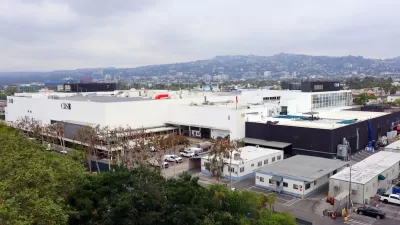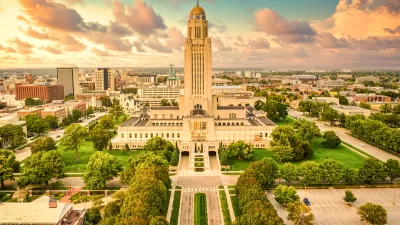A tour examining 'the future of work' looks at several 'coworking communities' around Manhattan, where freelancers and small businesses have pooled resources into one location.
"Coworking is rapidly emerging as a meme for the reorganization of knowledge work among entrepreneurs, programmers, writers and even, as we learned during our visits, sustainable furniture designers. The majority of discussions of the social implications of the Internet on the evolution of work and cities revolve around concepts such as the virtual office, online collaboration, and telecommuting. But, coworking communities (and related phenomenon that have grown out of the culture of the open source movement such as MeetUps and BarCamps) illustrate the ways in which these emergent forms of organizing are deeply embedded in physical places and, at the same time, enabled by new technologies such as laptops and wireless networks.
As the material artifacts of offices – messages, documents, photos and plans - are digitized and stored on servers, physical spaces have the potential to become increasingly open, flexible and sharable. Data security concerns aside, one can imagine a future scenario when most of the tools that we need to work effectively will be accessed and stored in "the cloud". This allows the dynamic reorganization and co-location of people, firms and activities that have been separated since the early days of industrialization, the advent of the hierarchical firm and the rise of cities themselves. For example, an office building might house a conference room that doubles as an entertainment room for the co-located apartments. Such arrangements will require new ways of thinking about private and semi-private spaces, trust and security, and ownership and property."
FULL STORY: Work and the Open Source City

Study: Maui’s Plan to Convert Vacation Rentals to Long-Term Housing Could Cause Nearly $1 Billion Economic Loss
The plan would reduce visitor accommodation by 25,% resulting in 1,900 jobs lost.

North Texas Transit Leaders Tout Benefits of TOD for Growing Region
At a summit focused on transit-oriented development, policymakers discussed how North Texas’ expanded light rail system can serve as a tool for economic growth.

Why Should We Subsidize Public Transportation?
Many public transit agencies face financial stress due to rising costs, declining fare revenue, and declining subsidies. Transit advocates must provide a strong business case for increasing public transit funding.

How Community Science Connects People, Parks, and Biodiversity
Community science engages people of all backgrounds in documenting local biodiversity, strengthening connections to nature, and contributing to global efforts like the City Nature Challenge to build a more inclusive and resilient future.

Alabama: Trump Terminates Settlements for Black Communities Harmed By Raw Sewage
Trump deemed the landmark civil rights agreement “illegal DEI and environmental justice policy.”

Dear Tesla Driver: “It’s not You, It’s Him.”
Amidst a booming bumper sticker industry, one writer offers solace to those asking, “Does this car make me look fascist?”
Urban Design for Planners 1: Software Tools
This six-course series explores essential urban design concepts using open source software and equips planners with the tools they need to participate fully in the urban design process.
Planning for Universal Design
Learn the tools for implementing Universal Design in planning regulations.
City of Santa Clarita
Ascent Environmental
Institute for Housing and Urban Development Studies (IHS)
City of Grandview
Harvard GSD Executive Education
Toledo-Lucas County Plan Commissions
Salt Lake City
NYU Wagner Graduate School of Public Service




























